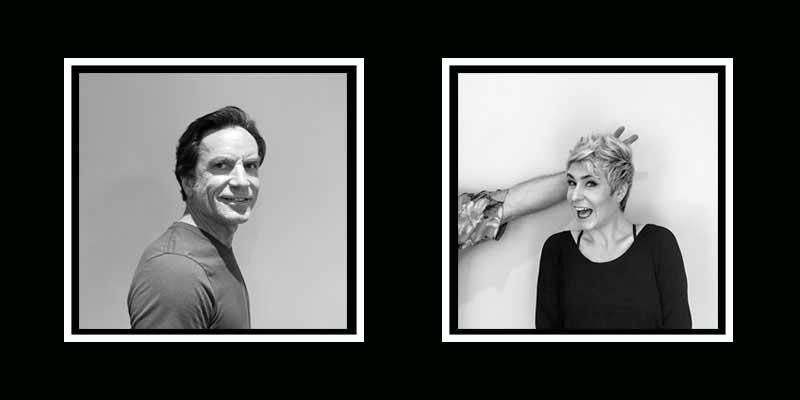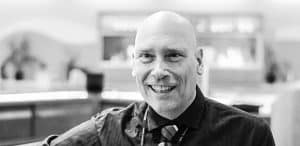As part of my Local Heroes series that profiles NW leaders who create great cultures in their organizations, I’m here today with Tessa Smith and Randy Foster from Artisans Group in Olympia, Washington. Artisans Group is the winner of the Gratification Award at the Tacoma Business 2016 Top Places to Work Event.
Tell me a little about Artisans Group.
Randy: We’re a design-build firm focusing on super energy efficient construction. It’s our niche. Having said that, we do a variety of remodel work and a fair amount of commercial work.
Tessa: But only fun stuff, you know: restaurants, coffee houses.
Randy: We really intend to design work that we’re going to build and only build work that we have designed. We break that rule occasionally. We have a high intentionality and a large capacity to keep the construction team involved in the design process. We make a lot of magic in the process of being in a close relationship with each other.
What’s your geographic reach?
Tessa: We have built as far away as the San Juan Islands. We built a pretty special home up there a few years ago that won some national awards. We did a project as far south as Skamania County which is near Vancouver, Washington. That’s been our region, anywhere in between, and west of the mountains, at least so far.
Lauren: How old is the company?
Randy: We started January 1st, 1997, so I guess the math is coming up as 20 years.
Lauren: That’s a long time! How many people do you have?
Randy: 17 right now.
Lauren: And how many are designers?
Randy: it’s about 50/50.
Tessa: I think we’ve got a little more in the field than we do in the office.
Lauren: What’s your culture like?
Tessa: Fun, relaxed. I think we do a really good job at encouraging people to be themselves and not trying to make people fit a mold but figure out how to mold the company to fit the people. I think there’s a lot of freedom. It’s more of an open concept office and not really as much hierarchy but more of a community. There’s no dress code, you can bring your dog to work, make your own hours and if you have kids we’ll work around that. I think we’re a company of people that want people to have rich lives and have work be just a piece of that. We don’t want what we’re doing to be people’s everything. We just want it to be a fun piece of their lives.
Randy: I think we actually are trying to find people to fit our mold but our mold is that they’re self-actualized individuals. That’s the commonality. When you have a bunch of people who see things differently and tend to operate according to how they see things, it creates a little bit of free-for-all potentially. But it offers a more satisfying work experience to everybody. If you’re surrounded by people who have their game on it creates a really great work environment. We do a lot of things that are not fun. But it can become a fun environment if you’re dealing with people who are trying to improve themselves, and treating others in a fashion that allows them to better themselves.
Lauren: I think in the best teams there is that element of people who aren’t afraid to speak their minds. It’s not about going after each other, it’s all about how can we create the best product possible, so we don’t leave anything on the table. There’s a passion there.
Tessa: I think a healthy view of conflict is a part of our company culture. We don’t view conflict as a bad thing.
Randy: We want different points of view. The notion that buffers this is bedside manner. It’s in the delivery. We can say we’re not looking for people to fit our mold but I really think we are. We’re looking for people who are self-actualized, but we are concerned if they’re capable of being nice to the people around them, particularly in a time of conflict. I also think that when you’re refining your skill of being nice to others in a time of conflict, you tend to receive constructive criticism in a positive way as well.
Lauren: How do you two work together? What are your roles in the company?
Tessa: Randy is the president and our chief financial officer. He runs the business side of things to a certain degree.
Randy: The financial aspect. I have a more structured view of the business and part of that’s financial but part of it is just having a business background.
Tessa: And I’m a licensed architect and I more directly manage the design portion of the company and I do our marketing and our website.
Randy: Tess is making the magic and I’m trying to make sure we’re running down the river while we’re making the magic, and not taking on water!
Tessa: He does it so well. Between the two of us there’s a big age difference, different genders, and very different personalities and value systems. I think out of that comes a very balanced kind of leadership. I think it makes us accessible to different types of people who work for us too.
Lauren: What’s the hardest thing for you to do as bosses for this company?
Randy: I know for me it’s the hyperbole of a small construction company with an average job size that’s 20% of our annual income and potentially having to scale the company up and down. Putting contingency plans in place on a regular basis. That’s my biggest source of stress. Can we be financially geared towards this great possible outcome or are we really going to hunker down and face the worst possible outcome for the next year? That never goes away when you’re in a small business dynamic.
Tessa: I would say it’s maintaining the pragmatism to do this job but also maintaining the sort of philosophical ideals. I don’t think we’d be doing the kind of Passive Houses, super energy efficient work if we didn’t care about what that meant in the grand scheme of things.
Lauren: There’s got to be an easier way of doing things.
Tessa: There is. Executing it well, executing it while taking care of your employees and your clients and then also remembering why you do it and keeping that at the forefront so that you’re constantly innovating. I think that’s challenging.
Randy: The niche that we’ve created and the thing that really makes our work excellent has a lot to do with these intangibles. You need people on the team who are raising their hand and saying, “No, let’s do it this way because I passionately believe in what we’re doing.’
Tessa: I think Randy does a really good job from his side of things, creating a culture where we have the right to do that.
Randy: But I do need to be bonked over the head every week to remember that, you know. Part of the magic is in having somebody raising their hand regularly and pushing back. Our construction team is always trying to get me to understand the current difficulties of their work, and that’s part of their job. We use this healthy conflict to help define how we can make the most magic within the owner’s budget.
Lauren: What’s your WHY? What’s your mission here?
Tessa: A lot of energy efficient homes are either kind of silly, full of technology that is never going to make sense, or they’re very ugly. I really think our battle cry from the beginning has been that there are great pieces of architecture first and then there are also places that are great pieces of architecture because they’re going to be better uses of resources.
Randy: We offer elegant solutions to super energy efficient home concepts. It’s not just the consumption of energy that’s lower. There’s a lot that goes into these elegant solutions. Part of that is the actual artistic element of the architecture, part of it is superior functionality, and part of it is performing all of that at a lower cost because we have the experience.
Tessa: We’re looking for our work to be soulful and that’s a kind of value.
Lauren: Who are your ideal clients?
Randy: They’re good at being in control of their own destiny and involved with their own life. The ideal client is going to be at peace with the budget range that they’re in. We actually spend a fair amount of time talking with people that can spend X amount of dollars but they’re not really comfortable with it. The ideal client is one that’s actually comfortable with it.
Tessa: It’s not like they have to have a big budget but our clients have to reconcile what they want to the budget they’re comfortable with. Not everybody can do that.
Randy: We’re not talking about only people with certain budgets. We’ve been doing feasibility work on a one-bedroom addition. The clients want it to be architecturally meaningful and they want it to be super energy efficient, really comfortable and quiet. They have their own great ideas and it happens to be the type of work that we design.
Lauren: One of things that great places to work have in common is that their internal communications with their team members are as valued as their external communications. How do you handle that?
Tessa: We do a lot of meetings face-to-face. I think there’s a lot that gets lost when you try to text or email or anything like that. We try to document process whenever we can but I think there’s a lot to be said for the human connection.
Lauren: How often?
Tessa: We do that once a month (with the whole team) and then we also have smaller departmental meetings kind of spread throughout.
Randy: We’re kings at the ad hoc meeting. If there’s a problem, we try to get the people that need to talk about it together within the next 24 hours. Now that we are over 10 employees, I’m rarely saying, “Oh yeah, thanks for letting me know about that, I will fix that.” It’s more like, “The person you need to talk to is XYZ. Do you want me at the meeting or not?”
Tessa: For me, one of the things that I really hated about previous jobs was feeling like I couldn’t ever enact any changes that made my job better. We really try hard to empower people to make changes. If you see an opportunity to improve something, just do it. And if it doesn’t work out, then sure I’ll help you bring more options but if you don’t like your reality, change it.
Randy: One of my guiding principles is that you can’t have the responsibility to do something if you don’t have the authority to do it. I’ve worked for other companies who were all about saying, “Ok you’re responsible for that.” But the first 10 things that I come up with that would facilitate that solution happening, I didn’t have the authority to implement. Ideas went into the black corner of consideration and never came up again.
Lauren: It doesn’t take a lot for a person in that position to just go “Screw it. I’m just going to be punished for bringing up good ideas so I’m not going to do it anymore.”
Tessa: Our latest conflict management effort is that we all got nerf guns in the office and we just keep shooting each other whenever we have a problem.
Randy: I would file that under fun.
Tessa: Oh really? I was thinking that it was a really good conflict management tool, too!
Randy: I did notice that Tess keeps two guns on her desk that are loaded and cocked, you know.
Tessa: I feel like it’s a very effective methodology for change.
Randy: I wear safety glasses in the office.
Lauren: How do you find great people?
Tessa: I feel like a lot of them find us. It’s a very community-based experience. For example, my dad is a drafting teacher at the local community college. A few years ago, he told me I had to take on one of his students as an intern here because he was so great. I told him, “I’m too busy, I don’t want an intern.” He said, “No, you’re going to take this intern. I already set up a lunch. You have to be there.” I showed up and he was right. That person now runs the design department. Your community, if they know who you are, helps you find great people who are a great fit.
Randy: If you drag that forward enough, you actually don’t hire when you feel the “maybes” about a potential hire. We’re patient in the hiring process. For example, we might find a person who could get us out of a jam that we’re in for the next 30 days but on day 31 we’re going to be kind of wishing we’d hired somebody else.
Lauren: Is it just you two or do you bring the team in?
Randy: We’re more about the team doing the heavy lifting on the interviewing. We try to have the person under scrutiny several different ways by several different people. They can’t just come in and have a good interview and get hired.
At the end of the day, by the time somebody is hired, they probably impressed more than one person more than one time in more than one media type. We do a background check on people and it’s not only we’re that looking into their file, whether or not they have a criminal record or something like that, we’re trying to verify if they have the stamina and the personal confidence to go through that type of process. Personal confidence is a big part of what we’re hiring.
Lauren: Three to five years out from today what does Artisans Group look like?
Tessa: We’ve started participating in the downtown Olympia revitalization quite heavily. We’ve got four projects down there right now so I anticipate that we’ll be even more happily entrenched in development downtown which is really exciting. I also think we’re going to be even more established in Seattle. We’ve got a couple of projects there right now and I think that’s just the beginning for us. I think it’s a really good market that fits us well.
Randy: I’ve always admired companies where the owners replaces themselves as the rock stars. Passive House design build is a small niche and it doesn’t take much to be a very well recognized face in that crowd. If you Google Passive House in the Pacific Northwest, there will be citations about Tessa and Randy. It’d be great if in five years they’re talking about other people on our team. Artisans Group is a vehicle for people to become well-known in the Passive House growth industry. It’s a great industry. It’s a really wonderful thing that’s happening.
Want to know the Top 7 Habits of my Local Heroes Leaders? Read about them here.




